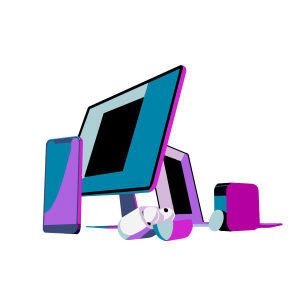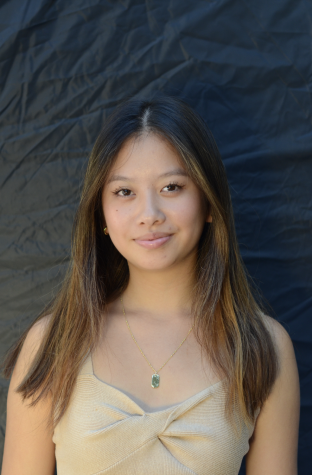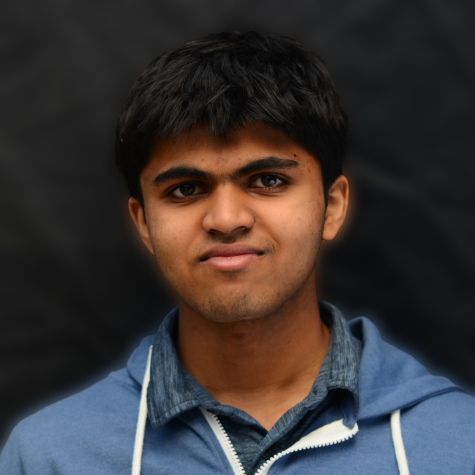STEM Scene: Aug. 17
August 17, 2021
SpaceX

SpaceX, the aerospace company founded by Elon Musk in 2002, successfully launched the GPS III Space Vehicle 05 mission on June 17. The vehicle was supported by a Falcon 9 rocket that had previously been used in the GPS III Space Vehicle 04 mission, demonstrating its reusability—one of SpaceX’s main goals. Additionally, on June 30, the Transporter-2 was launched as part of the SmallSat Rideshare Program, again with a reusable Falcon 9 rocket.
Jeff Bezos, executive chairman of Amazon, founded Blue Origin, a company competing with SpaceX on commercial space travel in 2000. He traveled into space for ten minutes aboard the New Shepard rocket, which was the company’s first passenger flight. He was accompanied by aviator Wally Funk, Oliver Daemen—whose father purchased the seat in an auction—and brother Mark Bezos. Currently, SpaceX is the only organization with the National Aeronautics and Space Administration (NASA) Human Landing System (HLS) contract, which allows the company to develop a moon lander for NASA. The Pew Research Center estimates that 58% of Americans remain uninterested in space travel. However, the emerging industry of space tourism, in which relatively untrained astronauts can visit space for a short period of time, is still worth billions of dollars.
Apple’s new products, software:

Apple recently announced a new addition to the iPhone and Mac lineups: automatic scanning for Child Sexual Abuse Material (CSAM). The company plans to use machine learning to compare images and videos stored on its devices to a government-provided CSAM database. In order to ensure user privacy, Apple devices will run the machine learning algorithm locally, take an irreversible cryptographic hash of its output and send that hash to the server for comparison. Only after several CSAM hashes are found will Apple flag a device for manual review and subsequently contact government authorities.
Critics claim that this feature ruins one of Apple’s most prominent selling points: user privacy. Moreover, as Apple has no control over the database of hashes used for CSAM detection, some fear that corrupt governments will use the feature to find and censor dissidents. CSAM scanning will be added to iOS 15, iPadOS 15, watchOS 8, and macOS 12 Monterey, all of which are scheduled for release by the end of fall.
New upper school STEM courses

The upper school’s semester-long Advanced Topics in Computer Science courses are offered on one-year, two-year, and four-year rotations. They are designed to contain college-level material with more projects instead of daily assignments. The courses are only available to students who have completed either AP Computer Science with Data Structures or Honors Data Structures. This year’s Advanced Topics courses are Robot Kinematics Software, which studies robotics and movement; Compilers and Interpreters, which dives into language processors; Computer Architecture, which looks at the Von Neumann model and boolean logic; Expert Systems, which introduces technology in spreadsheets and more complex structures; Neural Networks, which covers models for artificial intelligence; Numerical Methods, which includes techniques to solve mathematical problems and Programming Languages, which compares different popular languages.
The math department will continue to offer the same courses as previous years: Signals and Systems, which studies system classification, and Differential Equations II, which provides a more in-depth review of differential equations. Furthermore, two new science courses have been added: Biomedical Ethics, which analyzes the ethical issues in medicine, and Forensic Science, which provides an introduction to the techniques in forensics.


















![“[Building nerf blasters] became this outlet of creativity for me that hasn't been matched by anything else. The process [of] making a build complete to your desire is such a painstakingly difficult process, but I've had to learn from [the skills needed from] soldering to proper painting. There's so many different options for everything, if you think about it, it exists. The best part is [that] if it doesn't exist, you can build it yourself," Ishaan Parate said.](https://harkeraquila.com/wp-content/uploads/2022/08/DSC_8149-900x604.jpg)




![“When I came into high school, I was ready to be a follower. But DECA was a game changer for me. It helped me overcome my fear of public speaking, and it's played such a major role in who I've become today. To be able to successfully lead a chapter of 150 students, an officer team and be one of the upperclassmen I once really admired is something I'm [really] proud of,” Anvitha Tummala ('21) said.](https://harkeraquila.com/wp-content/uploads/2021/07/Screen-Shot-2021-07-25-at-9.50.05-AM-900x594.png)







![“I think getting up in the morning and having a sense of purpose [is exciting]. I think without a certain amount of drive, life is kind of obsolete and mundane, and I think having that every single day is what makes each day unique and kind of makes life exciting,” Neymika Jain (12) said.](https://harkeraquila.com/wp-content/uploads/2017/06/Screen-Shot-2017-06-03-at-4.54.16-PM.png)








![“My slogan is ‘slow feet, don’t eat, and I’m hungry.’ You need to run fast to get where you are–you aren't going to get those championships if you aren't fast,” Angel Cervantes (12) said. “I want to do well in school on my tests and in track and win championships for my team. I live by that, [and] I can do that anywhere: in the classroom or on the field.”](https://harkeraquila.com/wp-content/uploads/2018/06/DSC5146-900x601.jpg)
![“[Volleyball has] taught me how to fall correctly, and another thing it taught is that you don’t have to be the best at something to be good at it. If you just hit the ball in a smart way, then it still scores points and you’re good at it. You could be a background player and still make a much bigger impact on the team than you would think,” Anya Gert (’20) said.](https://harkeraquila.com/wp-content/uploads/2020/06/AnnaGert_JinTuan_HoHPhotoEdited-600x900.jpeg)

![“I'm not nearly there yet, but [my confidence has] definitely been getting better since I was pretty shy and timid coming into Harker my freshman year. I know that there's a lot of people that are really confident in what they do, and I really admire them. Everyone's so driven and that has really pushed me to kind of try to find my own place in high school and be more confident,” Alyssa Huang (’20) said.](https://harkeraquila.com/wp-content/uploads/2020/06/AlyssaHuang_EmilyChen_HoHPhoto-900x749.jpeg)









